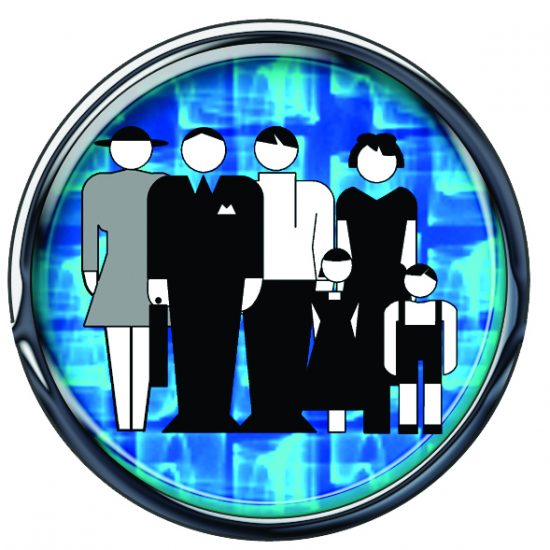Everyone likes to be with people who make us feel good. These folks are cheerful, kind and patient. And we are all (hopefully) striving each day to be the best version of ourselves as well. Something that tends to be true in the best people in our lives, is that they’re optimistic.
And believe it or not, optimistic people are healthier than their pessimistic counterparts.
Get this:
“…new meta-analysis, which examined 15 studies on optimism and health and utilized data from 229,391 individuals, found that a person’s tendency to think positively about the future was linked with a 35% lower risk for heart disease and a lower risk of death.”*
or
“…researchers find that optimists choose healthier lifestyles. For example, optimists smoke less, are more physically active, [and] consume more fruits [and] vegetables.”**
So, the science says being an optimist is fantastic for our psychological and physical health. So why are there so many people on anti-depressants? Why does negativity and pessimism dominate the crazed merry-go-round of our national news media? How much of our outlook on life is genetic and how much is in our hands?
Today, we’re going to attempt to shine light on the answers to these questions. We’re going to look at the actual differences and between optimism and pessimism and why we can fall into one more easily than the other.
But, first up an overview…
One of the core truths that spiritual teachers, psychologists and self-help folks all talk about, is our ability to decide how to interpret what happens to us.
From the ancient Stoics, through to Victor Frankel, the tactic of consciously choosing to frame what happens in our lives is perhaps one of the most powerful abilities we humans posses.
Now, just like anything else, we can use this ability to better or worsen our situation.
And just as a side tangent, I don’t believe it’s possible for us to have a truly neutral interpretation of something. Even if we experience something and feel unaffected by it, we’re constantly making subconscious judgments. And a habit of consistent neutral (which also means apathetic) judgments about something, ultimately causes a numbing, depressive effect, which is a net negative on our well-being.
But I digress…
Being an optimist means being someone who believes things have a good chance of working out and who habitually sees the positive sides in everyday situations. The pessimist believes things have a low chance of working out and who habitually sees negative sides in everyday situations. And here’s the surprising thing: whichever lens you look out from, you’ll find a lot of evidence to support it.
This is due to how our brains are wired; when we are primed to see something, our subconscious begins constantly scanning our environments for that, which makes it much more likely for us to find it. So the pessimist will have a long list of things that didn’t go the right way; proof that the pessimistic approach is correct! And, you guessed it, the optimist will have a corresponding list!
The amazing thing is; both people are right!
These are just 2 different ways of interpreting the same information; each with a slant one way.
Now here’s where it gets tricky…
All of us are inclined towards pessimism.
It’s called “Negativity Bias” and it means that biologically, we remember, anticipate and feel more strongly about negative things than positive things. In the wild, this was good, because the people who overreacted to a rustle in the bush, thinking it was a bear, outlived the people who always assumed it was a bunny rabbit. In our lives however, with far fewer bears roaming around us, this instinct can (and will) make us miserable, depressed wrecks.
Unless we train ourselves.
What our situation calls for is for us to make it a practice, just like brushing our teeth or eating healthy, to find what is positive in our environments. Often, we can get so accustomed to being negative, we don’t even realize we’re doing it. Now some of you might be thinking, “Well that’s all well and good, but in the end, it’s just two different ways of looking at the world. What’s it matter which one you pick?”
But like we saw at the beginning of this article, the evidence is that being optimistic helps you live longer, be happier, and be more successful.
Amazing, right?!
If you think about it, it makes sense; when you perpetually think something bad is about to happen, your body responds with stress hormones which damage your long-term health. And when you anticipate good things happening, your body responds with health-boosting chemicals, you think clearer and are more aware of opportunities around you. Opportunities you would have missed had you been expecting the walls to come crashing down any minute.
In a strange sense, what you expect of the world, often is what the world gives back to you.
So, below are some simple tips to begin strengthening your positivity ‘muscle’. Remember, your mental faculties are exactly the same as your muscles; what you use most gets strongest. What we need to do is start to balance out your mental musculature…
Keep a gratitude journal
I know, I know, to some of you, this tip sounds wishy-washy and might fill your mind with images of hippies, but don’t roll your eyes just yet!
The #1 scientifically proven way to boost your mood is to keep track of the things you’re grateful for.
Seriously, if you’re interested in the research, check out the book “The How of Happiness” by Sonja Lyubomirsky.
It can literally be just a 10 second routine you do when you wake up, but grab a pen and paper, and jot down 3 things that make you smile.
The rewards will be surprising!
Notice when you’re finding the negatives
A great way to start breaking a bad habit (especially an unconscious one) is to pay attention to how often you do it.
So in a nonjudgmental, kind way (remember it’s because you’re human, not because you’re you, that you’ve got this habit) notice what’s coloring your everyday judgments.
– Is it positive or negative?
– Is it assuming goodwill or negligence of others?
– Do they make you feel better or worse after you think them?
Start small and work your way up to your beliefs about bigger things.
Make one conscious positive interpretation at a set time, everyday.
Practice is the only way new habits are formed. So try deciding to make one positive judgement about something, at a specific time everyday; try when you sit down for lunch.
This kind of planing can lessen the stress you might feel from trying to be more positive (paradoxical, huh?).
So to recap…
We’re all biased towards looking at the bad side of things due to thousands of years of instinct, but like anything, we can train ourselves to become more positive and balanced mentally.
In addition, it’s been shown that choosing to see things in a positive light, can improve our health and lives in general.
Ultimately, we want to be fulfilled, connected and purposeful. And choosing how we see the world is one of the most important steps in reaching that dream.
And it starts with seeing that glass half full…
Challenge:
Here’s a set of practical challenges that you can do today, to improve the items discussed in this article:
- Investigate the outlook of your childhood. Spend some time examining what beliefs were common in your household and how you’ve carried those forward. Are they serving you?
- Look for something that makes you laugh. A great way to find more good in the world, is to try looking for something that makes you laugh joyfully. It’ll probably be some mundane thing you’ve noticed a thousand times before and never really looked at. Try it and see where the experiment takes you (perhaps to stand-up comedy).
* https://abcnews.go.com/Health/optimism-surprising-health-benefit-heart-health-
** https://en.wikipedia.org/wiki/Optimismstudy-finds/story?id=65875548
Written by Judah Beck




